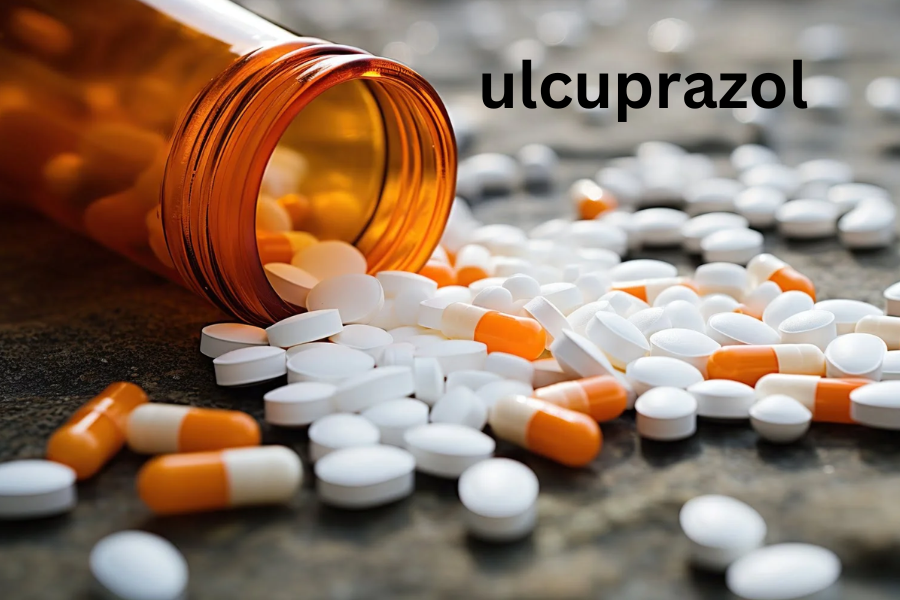The Promise of Ulcuprazol in Treating GERD
Gastroesophageal reflux disease (GERD) affects millions worldwide, causing persistent acid reflux and discomfort that can escalate into more severe health issues if left untreated. However, recent advancements in medical treatment have brought new hope to sufferers in the form of Ulcuprazol, a medication hailed for its innovative approach and efficacy in managing GERD symptoms and promoting healing.
Introduction
GERD, characterized by the backward flow of stomach acid into the esophagus, affects a significant portion of the global population. It often manifests as heartburn and regurgitation, impacting daily life and potentially leading to complications such as Barrett’s esophagus and esophageal cancer if not managed effectively.
Understanding Ulcuprazol
Ulcuprazol represents a breakthrough in GERD treatment, offering a unique mechanism to combat acid reflux and alleviate associated symptoms. Unlike traditional antacids that merely neutralize stomach acid, Ulcuprazol works by inhibiting the proton pump responsible for acid production in the stomach lining. This targeted action not only provides immediate relief from heartburn but also supports the healing of esophageal tissues damaged by prolonged acid exposure.
Mechanism of Action
The primary function of Ulcuprazol lies in its ability to block the H+/K+ ATPase enzyme system in parietal cells of the stomach lining. By doing so, it effectively reduces the production of gastric acid, thereby lowering the acidity levels in the stomach and preventing acid reflux into the esophagus. This dual-action approach sets it apart from other medications, making it a preferred choice for both acute symptom relief and long-term management of GERD.
Clinical Efficacy
Clinical trials and real-world studies have demonstrated the efficacy of Ulcuprazol in managing GERD symptoms. Patients treated with Ulcuprazol have reported significant reductions in the frequency and severity of heartburn episodes, as well as improvements in overall quality of life. Moreover, the medication’s role in promoting esophageal healing has been highlighted, with reduced instances of erosive esophagitis observed over treatment periods.
Safety Profile
Ulcuprazol is generally well-tolerated, with most adverse effects being mild and transient, such as headaches or nausea. Serious side effects are rare but can include allergic reactions or interactions with other medications, emphasizing the importance of consulting healthcare providers before starting treatment, especially for individuals with pre-existing medical conditions or taking multiple medications.
Patient Experience
Feedback from patients using Ulcuprazol has been largely positive, noting its rapid onset of action and sustained relief from GERD symptoms. Many individuals have expressed satisfaction with the medication’s ability to restore normal eating habits and improve sleep quality, which are often disrupted by frequent nighttime reflux.
Future Directions
As research continues to evolve, the future of Ulcuprazol in GERD treatment looks promising. Ongoing studies aim to explore its efficacy in specific patient populations, such as those with refractory GERD or complications like Barrett’s esophagus. Additionally, efforts are underway to optimize dosage regimens and enhance patient adherence to treatment, further improving outcomes and reducing the burden of GERD on global healthcare systems.
Conclusion
Ulcuprazol represents a significant advancement in the management of GERD, offering both symptomatic relief and therapeutic benefits for esophageal healing. Its unique mechanism of action and proven clinical efficacy make it a valuable option for healthcare providers and patients alike. As awareness grows and further research supports its use, Ulcuprazol stands poised to continue improving the lives of those affected by this chronic digestive condition.
This article explores the transformative impact of Ulcuprazol on GERD treatment, highlighting its mechanism of action, clinical efficacy, safety profile, patient experiences, and future prospects. As medical science progresses, innovations like Ulcuprazol pave the way for better outcomes and enhanced quality of life for GERD patients worldwide.






